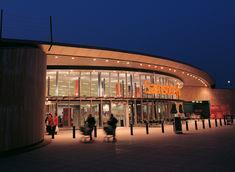
Green shopping has become a mainstream market phenomenon that can be “affordable and accessible to all”, new research has found.
The National Consumer Council (NCC), which puts the top UK retailers to the environmental test every year, released its annual league table this week.
Sainsbury’s joined Marks & Spencer and Waitrose at the top of the annual league table - all with a B rating - while both Tesco and Asda moved up a notch from a D to a C rating.
Morrisons and Somerfield reached a D rating, up from an E last year.
The study found that even lower-end retailers have embraced a greener approach.
But not one supermarket got top markets for the proportion of UK in-season produce on sale. The NCC recognised, however, that Asda, The Co-op and Somerfield have significantly increased the proportion of in-season vegetables sourced from the UK.
The research found a “wildly varying” performance in terms of unnecessary packaging and plastic bags.
NCC chair Larry Whitty said: “The food we eat is responsible for one-third of our impact on climate change - so it’s vital that the big supermarkets make green shopping much easier.
“NCC’s research has spotted important signs of progress right across the market, with all stores beginning to embrace sustainability.
“It’s really encouraging to see a mass-market retailer like Sainsbury’s can be a leader on sustainable initiatives. It proves that the green choice doe not need to be the preserve of the affluent - can be affordable and accessible to all.
“But even the top-performing supermarkets still have a long way to go - we would like them to do more to drive the green agenda consistently throughout their business.”
The NCC is urging UK supermarkets to source and promote more seasonal home-grown fruit and vegetables, and to set stricter targets for increasing the range of organic and other low-chemical food options, and calling for a number of other green initiatives.



